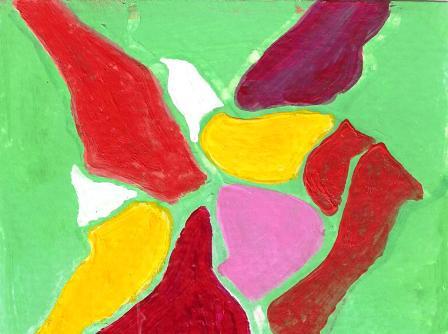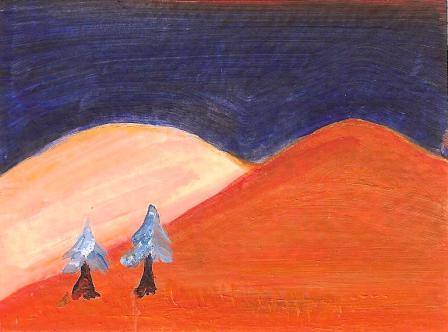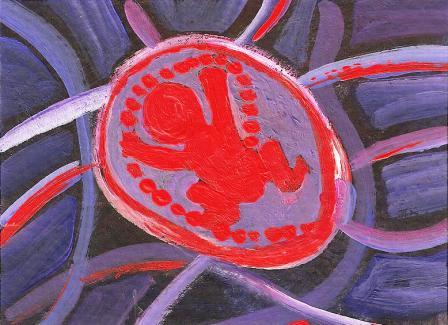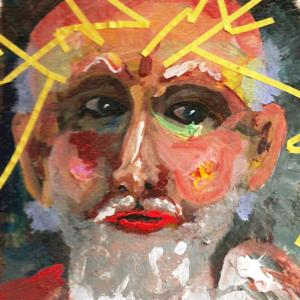 “How gladly I would treat you like sons and give you a desirable land, the most beautiful inheritance of any nation. I thought you would call me ‘Father’ and not turn away from following me. But like a woman unfaithful to her husband, so you have been unfaithful to me, O House of Israel,” declares the Lord. Jeremiah 3:19-20
“How gladly I would treat you like sons and give you a desirable land, the most beautiful inheritance of any nation. I thought you would call me ‘Father’ and not turn away from following me. But like a woman unfaithful to her husband, so you have been unfaithful to me, O House of Israel,” declares the Lord. Jeremiah 3:19-20
The painting is from above and it shows colorful fields of crops, a beautiful inheritance. But seen from another perspective, it is also a picture of fragmentation and division which is the result of unfaithfulness.

 They did not ask, “Where is the Lord who brought us up out of Egypt and led us through a land of deserts and rifts, a land of drought and darkness, a land where on one travels and no one lives.” Jeremiah 2:6
They did not ask, “Where is the Lord who brought us up out of Egypt and led us through a land of deserts and rifts, a land of drought and darkness, a land where on one travels and no one lives.” Jeremiah 2:6 Before I shaped you in the womb, I knew all about you. Before you saw the light of day, I had holy plans for you: prophet to the nations—that’s what I had in mind for you. Jeremiah 1:3
Before I shaped you in the womb, I knew all about you. Before you saw the light of day, I had holy plans for you: prophet to the nations—that’s what I had in mind for you. Jeremiah 1:3 Talk about a tough job assignment. In 627 BC the Assyrian Empire, wracked by internal strife, was crumbling. Babylon to the north was rising, Egypt to the west was threatening, and tiny Israel was caught in the middle. Having abandoned their original purpose as a nation under God, worship of Yahweh was a shell. The nation, torn by its own civil strife into two kingdoms of Israel and Judah, had given itself as a prostitute to other foreign gods. Into that maelstrom of political plots and religious apostasy, Jeremiah was called to speak. But few would listen. In the end his warnings proved to be true and the nation was destroyed and carted off into captivity.
Talk about a tough job assignment. In 627 BC the Assyrian Empire, wracked by internal strife, was crumbling. Babylon to the north was rising, Egypt to the west was threatening, and tiny Israel was caught in the middle. Having abandoned their original purpose as a nation under God, worship of Yahweh was a shell. The nation, torn by its own civil strife into two kingdoms of Israel and Judah, had given itself as a prostitute to other foreign gods. Into that maelstrom of political plots and religious apostasy, Jeremiah was called to speak. But few would listen. In the end his warnings proved to be true and the nation was destroyed and carted off into captivity.